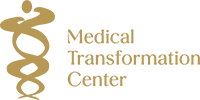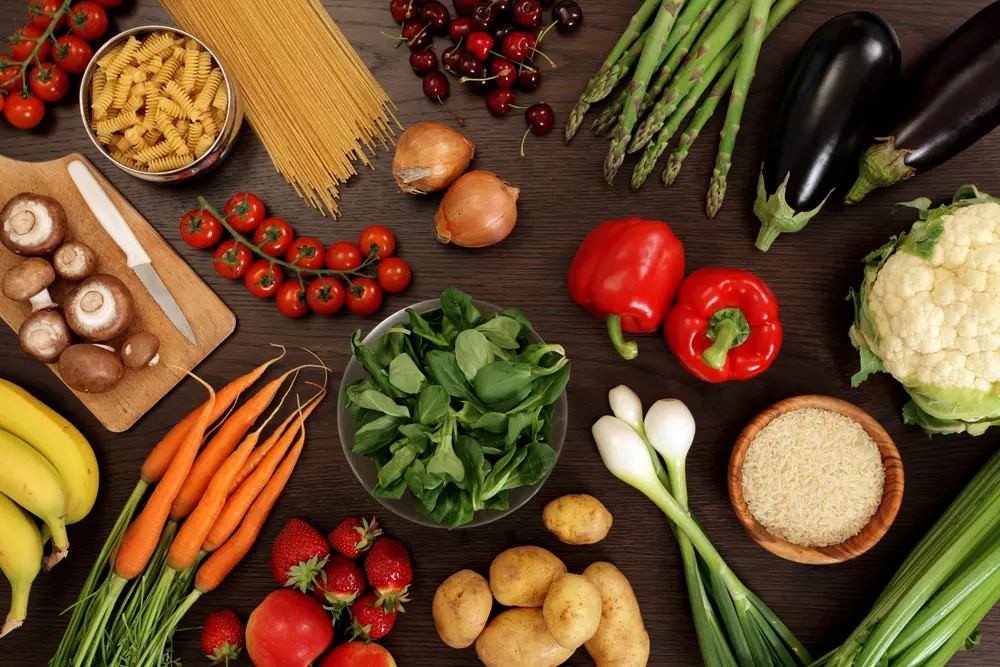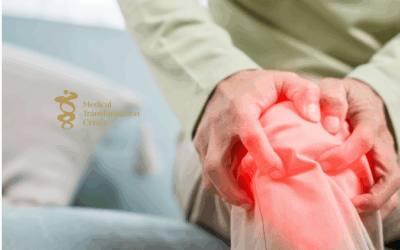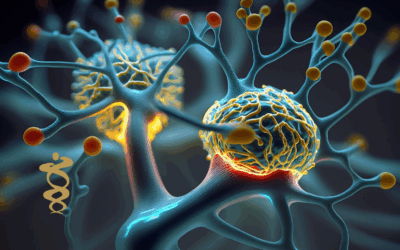Cancer treatments are intended to rid your body of the disease but, because of their potency, can also damage healthy cells in a way that leads to eating problems. These problems run the gamut from nausea to constipation and can severely impact your appetite. At Medical Transformation Center in Louisville, KY, we understand these trials and can craft a cancer nutrition plan that is both nourishing and manageable.
Cancer Nutrition: What Are the Best Foods for Patients with Cancer?
The last thing you want to get into your head is that you need to follow a specific diet. In other words, don’t think about what you should be eating; instead, stick to the eating and drinking habits that are healthiest for you. Keep in mind that goals during this time should include:
- Fluids to keep you hydrated (caffeine-free are best)
- Healthy foods that provide energy and nutrients
- Protein that maintains as much lean body mass and muscle as possible
A Few Options to Start
When we think of a healthy diet, we often think of fruits, vegetables, whole grains, and protein. But people with cancer face challenges that preclude them from eating in a normal way. You may, for instance, need extra calories to keep up your strength. This may mean eating more milk, nut butters, and starches. Likewise, if chewing and swallowing are difficult, you can add plain gravies to your meals to make them softer and more calorie-dense.
Condiments can also improve the taste and texture of foods, so feel free to reach for ketchup, mustard, mayo, honey, and syrup when they sound appealing. And, finally, low-fiber foods that help rest your bowels can ease the symptoms of cramping and diarrhea. We’re talking about simple, nourishing options like peanut butter, cottage cheese, and white rice.
Listen to Your Body
It helps to know how to respond to your body at different times. For instance, if the smells of certain hot foods are off-putting, reach for cold dishes that give off less scent. They can also help with nausea. Salads made with tuna, egg, or a similar protein stir the senses to a lesser degree and still provide nutrition. Also consider cold sandwiches, applesauce, and smoothies
It’s reasonable that you’ll have good and bad days where food is concerned. What sounds appealing one day may not the next. Pay attention to these signals without passing judgment on yourself. And keep in mind that eating when you can will help build your strength and sustain you when your appetite drops. This reduces the need to force yourself to eat at times when you simply can’t.
Eat When You Can
Having said this, you should also plan to eat when you have the biggest appetite, which for many is in the morning. Eat a larger meal at this time and, if you start to feel queasy later, drink meal replacements as needed throughout the rest of the day. Likewise, if a variety of foods don’t sound pleasing, it’s perfectly acceptable to eat the same dishes repeatedly.
What remains consistently important is the need to drink liquids, ideally eight to 12 cups per day. Keep a water bottle nearby if this helps and give yourself plenty of options, including clear carbonated beverages, weak tea, and apple juice.
Normal Is an Option
If treatment hasn’t posed any nutrition-related side effects, and you’re still able to readily eat and digest food, you can stick to the normal foods we mentioned just a moment earlier. We’re talking about nutritious fats, lean protein, and standard fares like fruits and veggies. But before you think any choice is a good choice, we suggest you forego greasy, fatty, and spicy foods. Lighter foods are typically easier on the system, including:
- Plain or fruited yogurt
- Toasted bagels
- Cereal and milk
- Poached eggs and toast
- Chicken rice soup with crackers
If these meals sound plain, it’s because they are. They also deliver the fuel your body needs without stressing your digestive system. On the days you’re able to, eat five or six light meals rather than three large ones; this reduces the likelihood of developing unwanted symptoms like constipation or diarrhea later. And smaller portions will likely be more enticing than those that are large and filling.
Vegetables
It’s important to eat a healthy amount of veggies for the nutrients they provide, but it’s equally important that you do so in the right way. Always cook them until tender, whether fresh or canned, and similarly cook sweet and white potatoes without spices. Vegetables make wholesome side dishes but can also be incorporated into souffles, casseroles, and cream sauces.
If you’re experiencing diarrhea, avoid all raw vegetables, beans, peas, and corn. Also keep these off your plate:
- Greens
- Brussels sprouts
- Cauliflower
- Broccoli
- Cabbage
- Sauerkraut
- Onions
Fruits
The fruits you eat should follow a similar pattern to vegetables, especially during bouts of stomach upset. Cook raw and canned seedless, skinless options until soft, and feel free to enjoy well-ripened bananas in small amounts. Soft cantaloupe and honeydew melon can likewise be eaten in small portions. Sherbet and popsicles are ideal snacks, as are puddings, ice cream, gelatin, and milkshakes.
Cookies, pies, and cakes can be eaten as long as they don’t contain coconut, nuts, berries, or dried fruits. For easy digestions, you should also avoid prunes, raisins, berries, and all raw fruits. Again, the goal is to take it easy on the body without igniting symptoms of nausea, diarrhea, and general malaise.
Proteins
Protein is an important part of cancer nutrition because it helps you heal. This nutrient has a presence in nearly every cell for a reason: it performs a variety of functions, including:
- Muscle maintenance
- Connective tissue repair
- Red blood cell management
- Enzyme and hormonal stabilization
Protein also helps transport medications and is integral to overall health. Throughout treatment, it’s important to amplify the protein you eat as a way to promote optimal recovery. Dishes that include turkey, seafood, and chicken are nutrient-rich and easier to digest than red meats – although you’re free to eat those as well if you can tolerate them. Greek yogurt, nuts, seeds, and beans can also help meet your protein needs.
Foods for Convenience
Fatigue is a common side effect of cancer nutrition treatment, so foods that require little to no preparation and are easy to eat make the most sense, especially on days when you feel your worst. These are the times when fresh fruit comes in handy, but canned options work just as well.
Plain yogurt can be customized in a way that suits your taste buds at any given time. Have berries, cinnamon, and slivered almonds within reach to add flavor and additional nutrition. Cold cereals made with shredded wheat, granola, or puffed brown rice are bland and easy on the body. The same can also be said of oatmeal, crackers, and cheese.
Read Your Labels
Whole grain is beneficial as it promotes regularity, so be sure the packages on any breads or snacks you buy indicate they are made with “100 percent whole grain.” With meats, look for those that are unprocessed and without nitrates. The slow cooker is a convenient way to prepare poultry that can then be added to soups or stews. Rotisserie chicken is just as easy, and eggs require little effort when scrambled or made into omelets.
Prepare Foods Ahead of Time
On days when you have more energy, such as those between treatments, it’s helpful to prepare foods that can be frozen and then easily reheated when your energy levels wane. Remember to avoid strong flavors and spices that might trigger nausea and focus on comfort foods like unseasoned vegetables, mashed potatoes, rice, and baked chicken. These are often well-tolerated and deliver nutrition even in small quantities.
Additional foods you might prepare and stick in the freezer include:
- Shepherd’s pie
- Chicken pot pie
- Cooked meats that can later be diced, chopped, or shredded for easy snacking
- Soups and broths
- Casseroles with lean meats and noodles
- Plain but hearty stews
- Macaroni and cheese
Seeking Guidance
Asking for help with cancer nutrition can alleviate fears and help you establish a comprehensive plan. Our professionally-trained staff can explore dietary options and focus on steps that are manageable for you. The goal is to identify healthy foods that prevent malnutrition, promote strength, and provide your body with the energy it needs to heal.
You can also use this time to ask questions, which we encourage. Ask about your favorite recipes and foods and whether or not they’re appropriate during cancer nutrition treatment. If you’re already on a special diet for heart disease, diabetes, or another health concern, let us know. We can advise you on following this regimen while also coping with the eating challenges posed by treatment.
Using Supplements
A lot of patients ask if supplements should be used during treatment, and the answer is less-straightforward than you might imagine. While they can help deter from deficiencies and balance body chemistry, those that are most beneficial need to be recommended on an individual basis. We can emphatically tell you that no mineral, vitamin, or antioxidant supplement should be taken without first consulting with a healthcare provider.
Why the need for such caution? Sometimes these nutrients can counteract the effects of radiation or chemotherapy. On the other hand, specific supplements can be used to prevent a second round of cancer, correct or prevent nutritional deficiencies (as mentioned earlier), and reduce the toxicity of treatments. We can make the best recommendations for you based on such factors as:
- Your nutritional needs
- Type of cancer you have
- Current treatment
- Health history
Weight Management
A number of patients experience weight loss or gain during treatment. While it sounds surprising, both can indeed occur. The former is often caused by an inflamed or sore throat that makes swallowing difficult, while the latter is common with certain types of cancer. The point is that a tailored approach to weight management can promote the best recovery without sacrificing nutrients.
Peptide Therapy
In recent years, the development of peptide therapy in treating cancer has shown great promise. Not only is it largely considered more effective than other therapies in the works, but it may prove to be more beneficial than even current treatments. Making peptide therapy a part of your plan for cancer nutrition may provide targeted therapy that destroys selective slow-growing and/or dormant cells.
Find What Works for You
This time necessitates that you think about your needs and your body without worrying about diet fads or what worked for another patient. We can help by identifying foods that are most likely to work with your current treatment plan. Schedule your consultation today by calling Medical Transformation Center in Louisville, KY.





